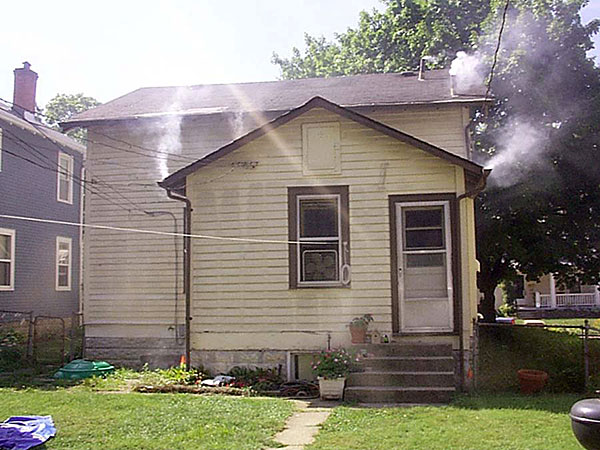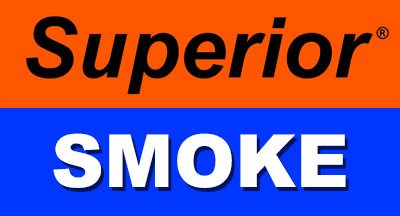When is the Best Time to Smoke Test? (Sewer)
M![]() any people wonder when is the best time to Smoke Test. Is summer best? Can you do it in the winter? Does it really matter if the ground is dry or not? These are important questions to answer, especially if you have a large project that takes many months to plan and execute.
any people wonder when is the best time to Smoke Test. Is summer best? Can you do it in the winter? Does it really matter if the ground is dry or not? These are important questions to answer, especially if you have a large project that takes many months to plan and execute.
There are indeed several weather-related factors that contribute to an optimal Smoke Test – but it is important to understand that most sources of surface inflow will be easy to find – and quickly exposed – with a Smoke Test any time of year, under most weather conditions. Many people think Smoke Testing can only be done when the weather is “just right”, but that is simply not true.
Extreme Conditions: It is true that you should never Smoke Test when there is significant snow or ice on the ground, as this may block the smoke from exposing many sources of surface inflow. It would also be ineffective to smoke test during heavy rain or windy/stormy conditions, as this too may block the smoke or disburse it before you can see it. Other than these extreme conditions of snow, ice, heavy rain or strong winds, Smoke Testing can be effective any time of year.
Here is why: Most surface inflow is caused by faults like uncapped pipes, illegal hookups, cross-connected sewers, and other unknown or improper connections. Weather and soil conditions have little or no effect on your ability to find these most serious faults with a Smoke Test, so in most places you can Smoke Test any time of year.

Best Conditions for an Optimal Smoke Test
Optimal Smoke Testing: There are some benefits to Smoke Testing when the season and/or weather is optimal. The largest factor is to have dry ground – not just at the surface, but deep down too. When the ground is dry cracks open up that can allow surface water to flow down and into broken or faulty laterals, mains, and other underground sewer infrastructure. Anywhere the water can go down or in – the Smoke will come out. People are amazed to see it, but it is not unusual to see smoke coming up out of a lawn, out of the dirt, or even out of small cracks in the sidewalk or the street! In this way you can find many faults with Smoke during your “dry season” that may not show up at other times. While these faults are not likely to be your major sources of inflow, they are still serious problems you need to find and repair. In addition to dry ground conditions, there are some other factors to consider.
Temperature: If you are using a Smoke Fluid System of any kind, it may not work as well in cold weather. All liquid smoke systems rely on the heat of the engine exhaust to generate the smoke. When the ambient temperature is colder – especially when it is below freezing – there is less heat so a fluid system simply cannot make as much smoke, or as dense a smoke, and this can reduce the effectiveness of your test. Insulated Smoke Fluid Systems can reduce the effect of cold weather on smoke testing with a fluid system. Smoke Candles are unaffected by temperature, so they may be a better choice to use in cooler conditions – even below freezing they work just fine.
Wind: Ideal conditions are no wind. Mild breezes are not a problem, but a steady wind can make it difficult to see smaller smoke plumes, or to find faults that are partially obscured behind fences or bushes.
Sun: Ideal conditions are sunny skies. Smoke is easiest to see in full sunlight, and although most faults will be observed down near the ground, some faults (like illegal gutter/downspout hookups) may be up high, and the white smoke is easier to spot against a blue sky.
Rain: Although dry conditions are best, light rain or drizzle will not degrade the effectiveness of your smoke test if the ground does not become heavily soaked. When using Smoke Candles be sure to keep them dry until activation.
Smoke Testing is the most cost effective method to find sources of surface inflow
Smoke Testing can find faults that are nearly impossible to discover any other way. Testing under optimal conditions will maximize the number of faults that are discovered, but even under less than ideal conditions Smoke Testing is still very effective, and worth doing almost any time of year.


